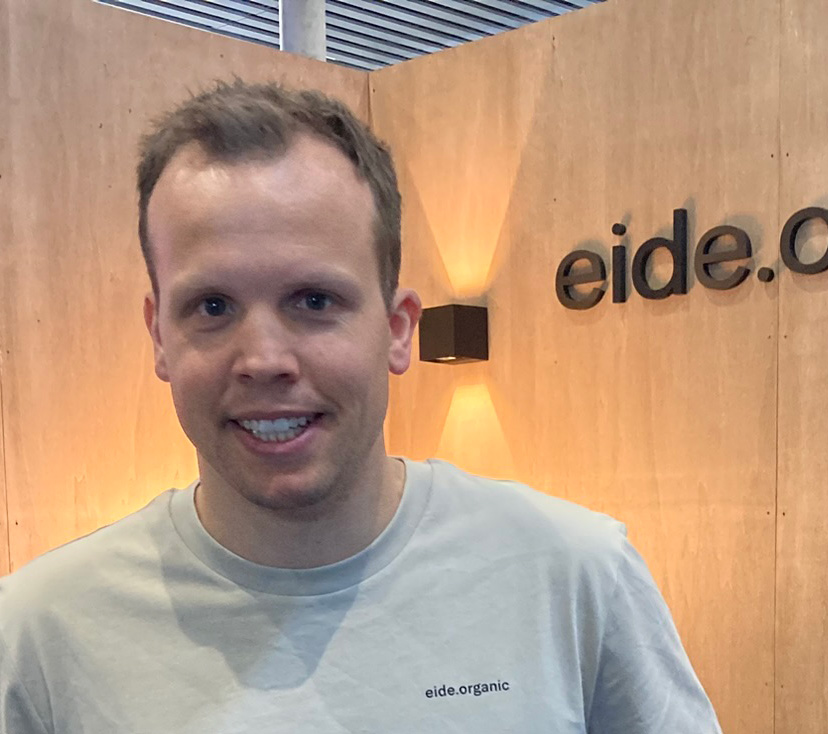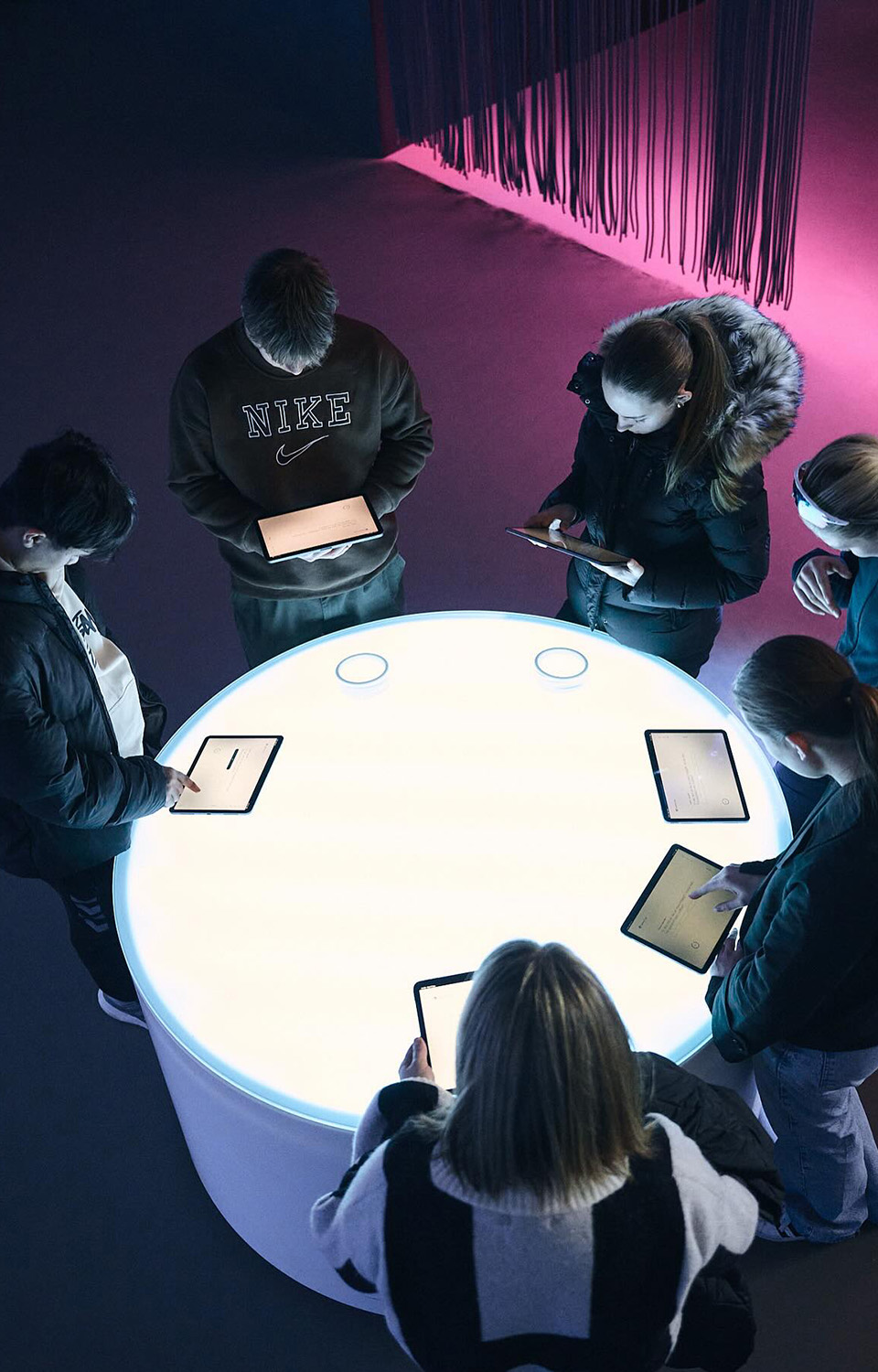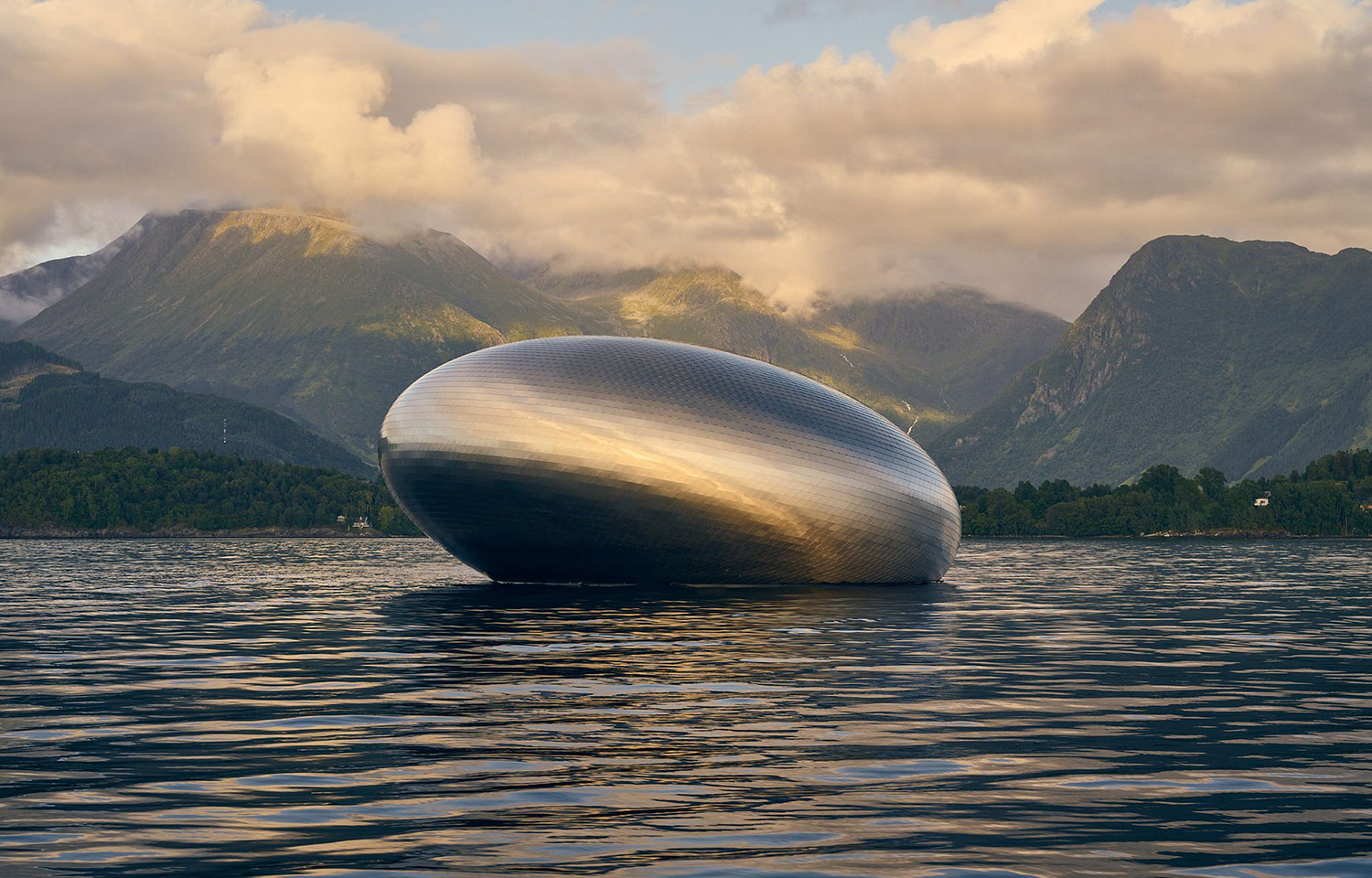Eide Fjordbruk’s Salmon Eye and its newly Michelin-starred restaurant, Iris, have been named to Time Magazine’s The World’s Greatest Places of 2024 list – a prominent recognition rewarding the family-owned Norwegian organic salmon-farming firm for an innovative effort to meld aquaculture with experiential tourism.
“Housed inside the ellipsoid-shaped Salmon Eye structure – a floating art installation conceptualized by Eide Fjordbruk, considered the world’s first CarbonNeutral-certified salmon producer – Iris takes guests on a unique culinary quest,” Time wrote on 25 July.
Eide Fjordbruk was founded in 1972 as a freshwater trout-farming operation in Hålandsdalen, Norway. It expanded into operating sea cages farming trout and Atlantic salmon in the 1980s, but not wanting to sacrifice quality and high environmental and fish welfare standards and also to take advantage of an emerging niche market, Eide committed to raising salmon certified to the European Union Organic standard. Currently, four of its 12 farming sites are organic, with a plan to get to 50 percent organic production by the end of 2024, according to Eide Fjordbruk Co-Owner Erlend Eide.
“We are aiming for 8,000 tons in 2024 and in 2025, and in total, with the regular production, we have almost around 20,000 tons of salmon,” he told SeafoodSource.

Demand for certified organic salmon is growing – and not just in the E.U., Eide said.
“We are seeing more and more people want natural fish, like they would be in nature,” he said. “We are an intermediate-sized farm – we are not small but we are big enough to be able to deliver salmon every week all year. We determined the best way for us was to be a specialist in organic and be known as a company that puts care into every fish.”
But, Eide said it’s increasingly difficult to grow a company purely devoted to aquaculture in Norway, with permits extremely hard to come by and costs rising due to global inflation on top of a newly imposed resource tax hitting the industry in 2024. TTo diversify, and to honor the values of Eide’s father, Knut Frode Eide, who died in 2018, the company conceptualized an ambitious project it called “Salmon Eye” – a floating educational center and fine-dining restaurant in the Hardangerfjord in southern Norway, adjacent to one of its farms.
Salmon Eye opened in September 2022, and Iris served its first meal in June 2023. The visitor’s center is open year-round, and the restaurant closes for just two months a year, in the deepest part of the Norwegian winter. The Salmon Eye experience is limited to 24 people daily, takes six hours, and costs NOK 4,600 (USD 417, EUR 384). The experience includes a tour of the fish farm as well as small courses served around the fjord, followed by a multi-course dinner inside the futuristic-looking metal-shingle-coated floating structure, which just won a 2024 German Design Award for Excellence in Architecture.
“Once they’ve arrived, guests – up to 24 per day – are treated to curated snacks, drinks, and music in an unspoiled natural setting,” Time wrote. “An hour or so later, diners continue on to the greenery-and glacier-surrounded Hardanger Fjord where they board the Salmon Eye, which is aimed at educating visitors about sustainable seafood practices.”

Iris Head Chef Anika Madsen “incorporates sensory storytelling about the origins of indigenous ingredients collected from local farmers and fishermen and explains how each dish better serves the planet,” Time said. “Savory standouts include Norwegian cuttlefish tagliatelle paired with a kelp, celeriac, and strawberry butter sauce and salmon fry with algae, mycelium (mushroom roots), and a sprinkle of insect protein.”
Eide Fjordbruk’s own mission as a company has been closely tied into both the menu and the concepts behind it.
“The menu at Iris reads like a story. A story about the challenges and threats to the global food system, but also with ideas and suggestions for future innovations, that can help bring us closer to solving them,” the company said in its description of the restaurant on its website.
Courses served at Iris include lumpfish – used as cleaner fish – and smolt culled from the nearby farm, and ingredients used in select dishes include insect protein, mycelium, and chlorella algae, which are being developed as alternative protein sources for salmon feed, according to a Washington Post video review.
Eide said while Salmon Eye is already a commercial success, the company has – and has always had – a larger vision for ...








